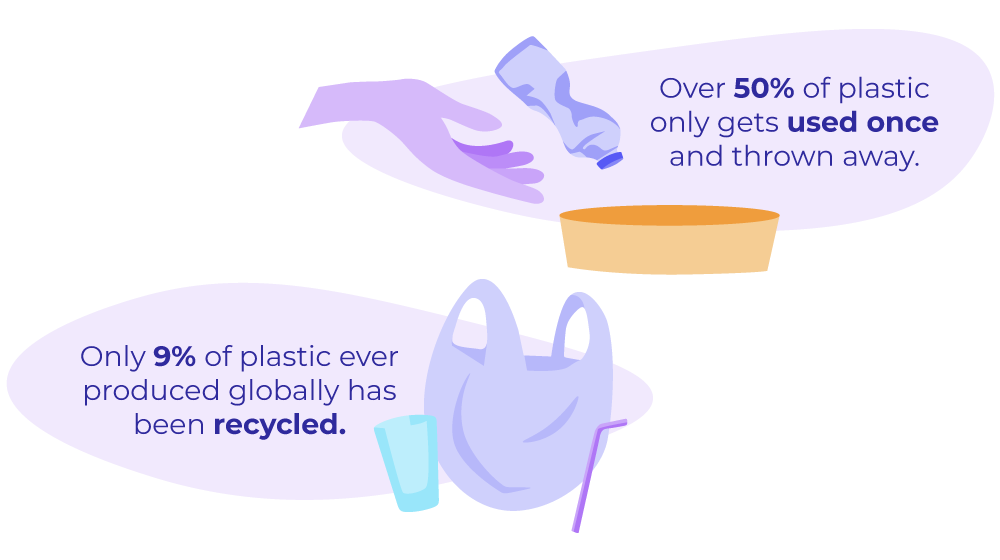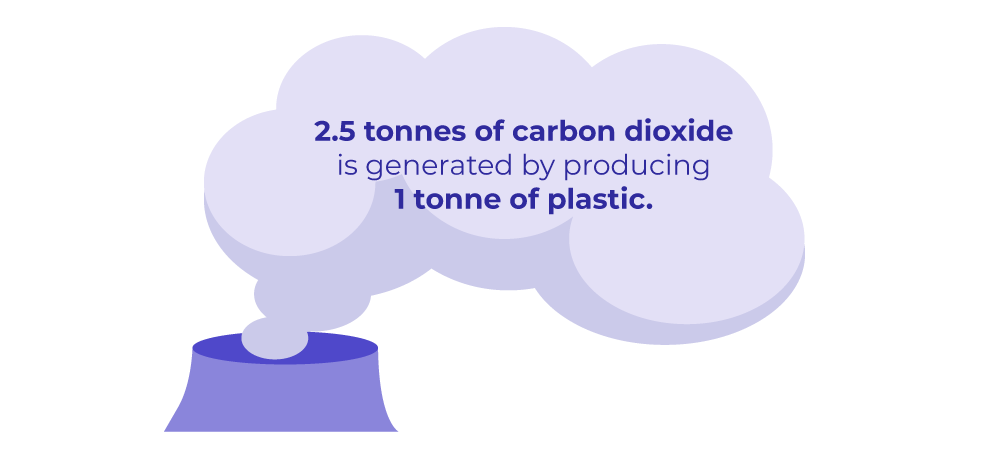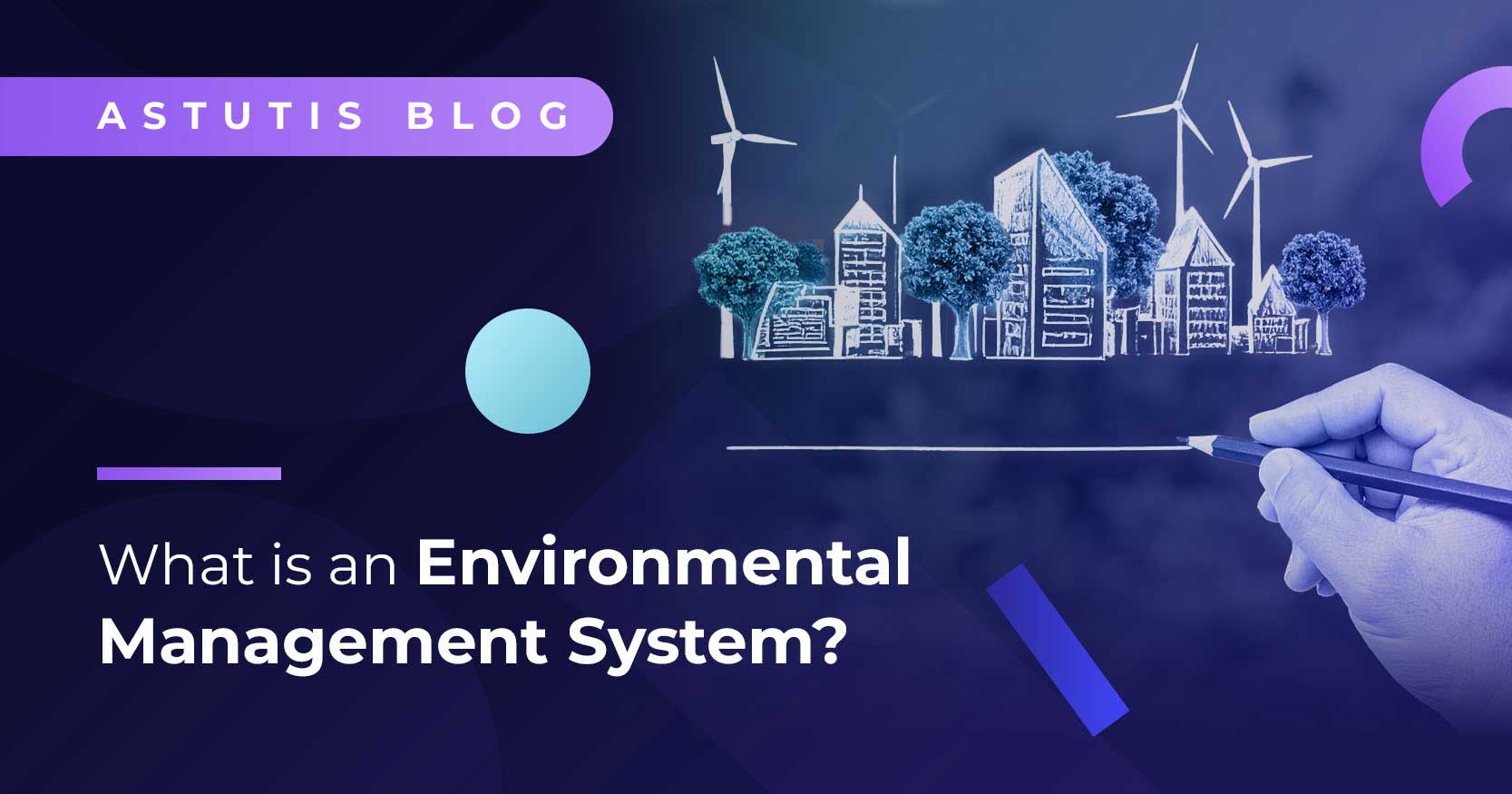How Businesses Can Reduce Their Plastic Pollution | UNEP World Environment Day
World Environment Day provides a wonderful opportunity for governments and organisations to reaffirm their commitment to preserve and enhance the natural world. Instigated by the United Nations (UN), the annual celebration falls on 5th June and the focus this year is on ending plastic pollution with hosts, the Republic of Korea, leading global discussions.
As a society, plastic has become a very damaging dependency. In addition to this the global plastics waste trade has been outsourced from wealthy industrialised nations to economically disadvantaged countries that do not have appropriate handling facilities. Businesses must be aware of the consequences of plastic pollution, and the relevant policy and legislation. As experts in the environmental field, we are perfectly placed to provide you with advice on how to reduce plastic pollution in businesses.
History of Plastics
Plastic is believed to have been invented in the UK in the mid-19th century by Alexander Parkes who patented his new semi-synthetic material as Parkesine. Subsequently, fully synthetic Bakelite was produced enabling affordable, fashionable products such as the GPO telephone to become widely available. Further developments led by petroleum and chemical industries have enabled this “wonder material” to shape life today as we know it.
Plastic is cheap, waterproof, versatile, durable, easy to make and perfect for many forms of packaging. However, once it has met its primary purpose, disposal of the discarded item is all too often a source of pollution.

Whilst durability is one of the advantages of plastic, it is also a huge disadvantage as, according to the Science Museum, it can take several thousand years to decompose in landfill.
Societal Plastic Dependency
Have you ever thought how much plastic is relied on at work? Take a look around your office. The chances are that plastic is contained in your laptop, keyboard, mobile phone, office furniture, flooring, partitions and even window frames. It is used in most industries from construction to fast fashion and from transportation to packaging
Eager find out how the construction industry can reduce its waste production? We’ve produced a simple guide for construction businesses.
Fifty percent of plastic produced is for single use. Globally, one million single-use plastic bottles are bought every minute and five trillion plastic bags every year. As single-use plastic has a high fossil fuel content its production creates greenhouse gas emissions which contribute to human induced climate change.

Reduction in consumption of single-use plastic could not only reduce greenhouse gas emissions but would also avoid the need to dispose of the discarded item so that plastic pollution is not created.
Global Plastics Waste Trade Controversies
The average person in the UK disposes of more plastic waste than most other nations per capita. Whilst some plastic is recycled in the UK, about 91% of all plastic ever produced has not been recycled with most plastic waste being either “landfilled, incinerated or leaked into the environment” and not necessarily in the country of origin.
An investigation by the Environmental Investigation Agency (EIA) has discovered that loopholes in international law have enabled the outsourcing of plastic waste from wealthy industrialised nations to economically disadvantaged countries that do not have appropriate handling facilities. This waste colonialism exploits lower income countries and perpetuates environmental and social injustice. The report found that illegal fraudulent practices took advantage of the UK’s extended producer responsibility (EPR) scheme to the tune of £50 million annually. This mismanagement of plastic waste pollutes waterways, land, soil and air.
Environmental Consequences of Plastic Pollution
Public awareness of the ubiquity of plastic pollution in our oceans was raised in the BBC’s multi-award-winning Blue Planet II. Graphic images depicting the harm that plastic causes to marine life and the undeniable link to human culpability saw many take action to reduce reliance upon plastic. Nevertheless, the United Nations (UN) projects that the amount of plastic entering waterways is set to treble over the coming years from 9-14 million tonnes per annum in 2016 to a 23-37 million tonnes by 2040.
According to Client Earth, plastic pollution is responsible for the deaths of 300,000 whales, dolphins and porpoises every year and microplastics were evident in the blood of 80% of humans tested. Antarctic sea ice, drinking water and farmland have all been found to contain micro plastics which can leach toxins into soil and into the food we eat. The Plastic Pollution Coalition also believes that plastic is in the air we breathe.
Plastic Pollution Policies and Legislation for Businesses
The most effective way to reduce plastic pollution is to eliminate it at source. Bangladesh was the first country to do so by banning thin single-use plastic bags which blocked drains and accentuated flooding. Many other lower income countries, especially in sub-Saharan Africa, have followed suit thereby reducing littering and removing the toxic hazard from the natural world. Meanwhile, a global treaty to end plastic pollution is under discussion and could ensure all countries act responsibly. The next round of talks is to take place in Geneva in August.
In the UK in 2011 Wales championed the policy to charge a levy on the supply of single-use carrier bags which saw a reduction in use of between 70 and 96% in its first year. Similar policies have since been adopted by all UK nations as well as more recent legislation to restrict the supply of single-use plastic items including stirrers, cotton buds and straws.
On 1st January 2025 the Producer Responsibility Obligations (Packaging and Packaging Waste) Regulations 2024 came into force setting a target for relevant companies to recycle 55% of plastic packaging waste this year, rising to 57% next year and 59% in 2027.
To ensure legislative compliance, a Packaging Waste Recycling Note (PRN) or Packaging Waste Export Recycling Note (PERN) is required.
How Can Businesses Reduce Plastic Pollution?
The obvious way for businesses to reduce plastic pollution is to eliminate plastic in the first place. However, if the cost, convenience and accessibility of this “wonder material” renders elimination impractical, the principles of the circular economy should be considered so that waste is designed out of the manufacturing process and materials are retained in the loop. As a last resort, plastic should be recycled, in line with local laws, which would ensure that plastic waste does not make its way into the environment as plastic pollution.
To keep on top of environmental and sustainability news for businesses, you can head over to our Astutis Knowledge Hub below - where we feature expert guides, industry news and insights. Additionally, you can also find out more about the environmental and sustainability by partaking in environmental training. We have a wealth of environmental courses available for all levels of an organisation so you can become more sustainable in your role or drive significant change across departments.
Astutis Knowledge Hub

Real Life Stories









